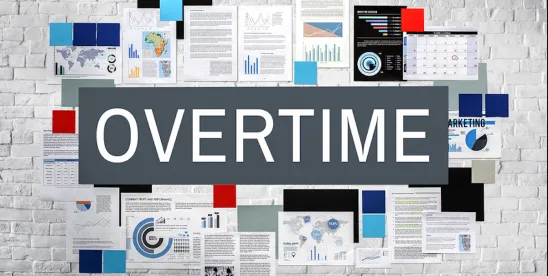The U.S. Department of Labor (DOL) has released a final rule that increases the salary threshold for the white collar overtime exemptions from the current $35,568 yearly minimum to $43,888 on July 1, 2024, and then to $58,656 on January 1, 2025. This means that, beginning January 1, 2025, most employees making less than $58,656 must receive overtime pay—time and a half their regular hourly rate—for any time worked more than 40 hours in one workweek. The changes also raise the salary requirement for what is known as the “highly compensated individual exemption” from the current $107,432 per year to $132,964 on July 1, 2024, and then to $151,164 on January 1, 2025. Notably, the DOL final rule requires automatic updates to the salary threshold every three years.
The DOL initially proposed to raise the overtime exemption to $55,068 and the salary requirement for the “highly compensated individual exemption” to $143,988. The final rule modifies those numbers and now involves incremental increases in a two-step process.
The DOL estimates that this impacts almost 4 million workers who are currently salaried. Employers must face the decision to either increase salaries for many exempt workers to the proposed minimum of $43,888 by July 1, 2024 and then $58,656 by January 1, 2025, or convert those exempt employees falling under the minimum salary to non-exempt hourly workers.
This rule will likely be challenged in the courts. However, it is uncertain whether these challenges will be successful. Therefore, businesses should take steps now to prepare:
- Review current exempt employees who earn between $35,568 and $55,656 per year. You can track employees' actual hours worked now to learn the potential impact of converting them to overtime pay.
- Review current compliance. Although the proposed rule changes the salary threshold but not the other factors for an employee to be eligible for the “white collar” federal overtime exemption, the rule may cause employees to scrutinize their exempt classification. Employers should ensure that their exempt employees meet the three exception requirements: (1) paid on a salary basis; (2) paid at least the designated minimum salary; and (3) perform certain duties (which vary based on the exemption.)
- Plan to give advance notice to employees and provide training to managers and those workers impacted. If converted to non-exempt status, employees will need to be trained in record keeping requirements, timekeeping procedures, overtime approval policies, and other specifics that may vary from business to business.





 />i
/>i
